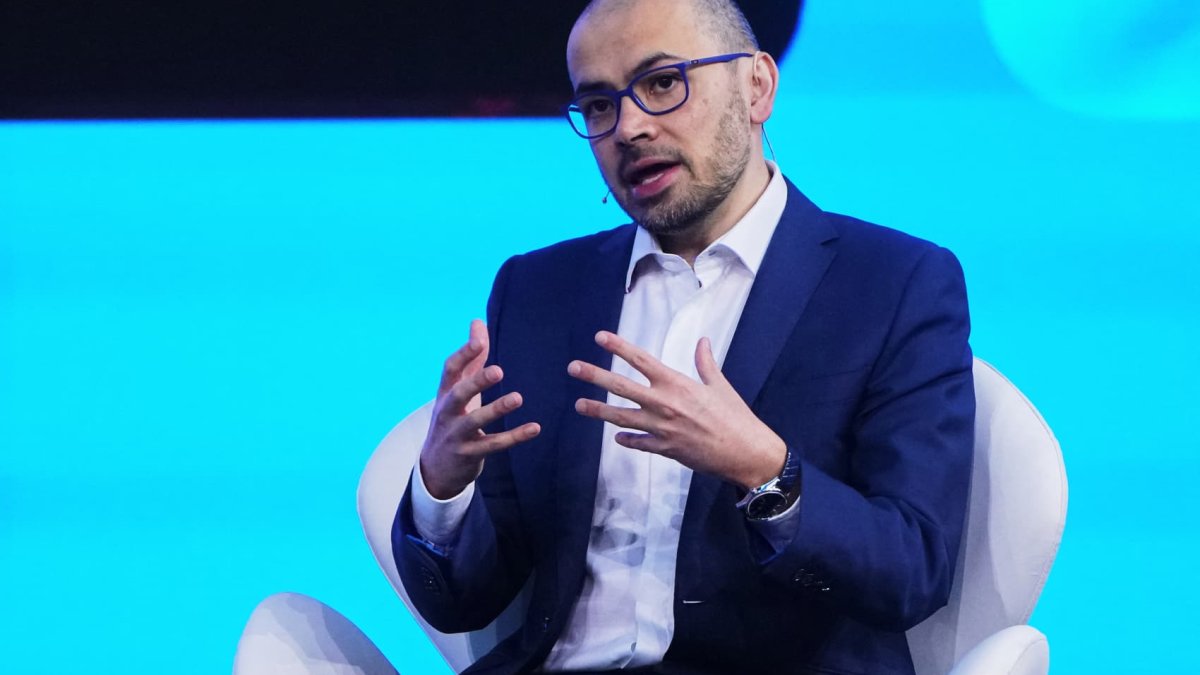CEO of Google DeepMind predicts AI will rival human capabilities in all tasks within five to ten years.

The Future of Artificial General Intelligence
Insights from Google DeepMind’s CEO
Demis Hassabis, the CEO of Google DeepMind, has recently expressed his thoughts on the timeline for the emergence of artificial general intelligence (AGI). According to Hassabis, AGI, which refers to AI systems that possess human-like intelligence, could begin to appear within the next five to ten years. While current AI technologies achieve impressive results in specific areas, Hassabis acknowledges that they still lack capabilities in many others. He emphasizes that there remains substantial research and development required to bridge this gap.
Understanding Artificial General Intelligence (AGI)
AGI is defined as the ability of an AI system to perform any intellectual task that a human being can do. It represents a significant leap from the narrow AI applications we see today, which are designed for specific tasks such as language translation, image recognition, or playing strategy games.
Hassabis has pointed out that, although AI systems are remarkable in certain situations, they often fall short in understanding the complexities of the real world. The journey to achieve AGI entails developing systems that can comprehend context and make sense of various real-world scenarios.
Industry Opinions on the Timeline for AGI
Hassabis’ prediction highlights a divergence in the views of tech leaders regarding the arrival of AGI. For instance, Robin Li, the CEO of Baidu, has stated that he believes AGI is over ten years away, challenging some overly optimistic timelines presented by other industry figures.
Conversely, Dario Amodei, the CEO of Anthropic, predicted at the World Economic Forum earlier this year that a form of AI surpassing human capabilities could emerge within two to three years. Other leaders, such as Jeetu Patel from Cisco, have suggested that significant evidence of AGI could materialize as early as 2025, indicating a wide range of expectations in the industry about when AGI might be achieved.
The Challenges Ahead in Developing AGI
One of the primary hurdles in reaching AGI is teaching AI systems to grasp and interpret real-world contexts. While existing AI technologies can excel at tasks within constrained environments—like games that require strategic thinking—the challenge lies in adapting these systems for broader applications in everyday life.
Hassabis mentioned the importance of progressing in "planning ideas" and developing agent-like behaviors that allow AI systems to operate effectively in the real world. Current research aims to improve "world models," enabling AI to understand its environment better.
One notable case study involves DeepMind’s efforts in creating AI agents to play the complex game "Starcraft." This project focuses on fostering collaborative and competitive behaviors among AI agents, providing valuable insights into multi-agent systems. The ability of these agents to communicate and share information is crucial for further advancements in AGI.
The Future Path of AI Development
Experts recognize several stages in the evolution of AI. First is the basic AI we experience today, followed by AGI, and ultimately, a possible stage referred to as artificial superintelligence (ASI), which would exceed human intelligence. However, no one, including Hassabis, can predict with certainty when these advancements will occur.
Elon Musk has forecast AGI becoming a reality by 2026, while OpenAI’s Sam Altman shares a more optimistic perspective, suggesting that significant developments could happen in the "reasonably close future." As conversations and research in the AI field continue to evolve, industry leaders remain focused on overcoming challenges and paving the way for more advanced AI systems.
With ongoing progress and an increasing understanding of AI’s potential, the path to AGI appears more defined, yet it is still complex and requires careful navigation.


